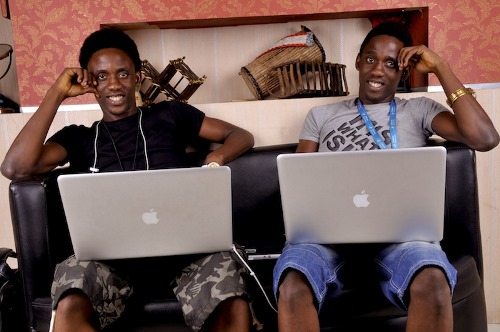There are a couple of issues, which will surely change everything in future professions:
- Robotization and automation of various processes (we have already written about the competition with robots);
- standardization and the appearance of the finished product constructors;
- globalization – less individual productions, more licenses, franchising, less creativity as the matter of fact.
Given all of the above, let’s look at specific areas of various professions.
Seek and find your job on Jiji – here they offer so many vacancies every day that you won`t be out of work!
Programmers
However, regardless of the career you select, there are a set of other things you should learn:
- Public speaking and other interpersonal communications.
- The basics of finance, accounting, and money management.
- A solid grounding in math and statistics.
- Find experiences selling something … even if it is just a summer job as a waiter or in a call center.
And, learn way more than just programming … learn about UI design, system architecture, databases, and, most importantly, working in teams.
Chefs
The best job opportunities for chefs in the future will come from more upscale restaurants, hotels, and casinos. However, because these jobs pay more, competition for them will be fierce, according to the Bureau of Labor Statistics.
Cooks, who want to be competitive against other job applicants should focus on work experience, gaining a reputation for creativity and developing business skills.
Marketers
There are five key things marketers should start doing now to be prepared for the future:
- Show initiative—take a course.
- Get technical.
- Volunteer at a startup.
- Surround yourself with highly technical people.
- Don’t ditch your art background.
Lawyers
The key drivers of change in the legal services market can be clustered into five groups:
- global and national economic business environments.
- how clients buy legal services (including in-house lawyer buyers, as well as small and medium-sized businesses and the public).
- technological and process innovation .
- new entrants and types of competition.
- wider political agendas around funding, regulation and the principles of access to justice.
Doctors
The role of technology in healthcare is accelerating. ?areful deployment of emerging enabling technologies can extend and expand the doctor’s reach and improve patient outcomes. These technologies place doctors in a new role of facilitating consumers to look after their own health, including both preventions as well as long-term management of health conditions.
However, the implications are that doctors, as well as other health care practitioners, will need to change their method of practice, moving from a focus on one-to-one facility-based encounters to one-to-many relationships that transcend facility boundaries.
Teachers
Discussion as to the future of the teaching profession may assume that the shape of that future will be defined by the soothsayers, think tanks, policy apparatchiks and corporate gurus. While all may stake a claim to that discursive space, their ambitious blueprints will fail to materialize without the engagement of those closest to the action, in touch on a daily basis with the lives of children and young people.
That implies a dialogic intent and a large measure of goodwill. ‘Dia-logos’, the Greek term from which we derive our much-misused word, may be translated as ‘meaning flowing through it’, a process of engagement which begins with a desire to understand and to seek out the future already in the present.
Engineers
Among various recent trends in the engineering profession computerization is the most widespread. The trend in modern engineering offices is also towards computerization. Computers are increasingly used for solving complex problems as well as for generating, storing and handling the enormous volume of data modern engineers must work with.
Scientific methods of engineering are applied in several fields not connected directly to manufacture and construction. Modern engineering is characterized by the broad application of what is known as systems engineering principles.
Engineers in industry work not only with machines but also with people, to determine how machines can be operated most efficiently by workers. A small change in the location of the controls of a machine or of its position with relation to other machines or equipment, or a change in the muscular movements of the operator, often results in greatly increased production. This type of engineering work is called time-study engineering.
Office managers, personal assistants
Training and Development – organizations are investing more than ever before in specialized Companies are realizing that this is a career. Assistants 7 secretaries invest in themselves, but they need to see that they are valuable. Brian Tracy says you need to invest in yourself, because when you do, you take that with you for the rest of your life. Assistants need to see themselves as valuable assets.
Succession Planning for Senior-level Executive Assistants – We are at a critical juncture of a work exodus and entrance of new faces assuming leadership roles. Companies are seeing the value of planning as they anticipate the departure of their most experienced assistants within the next few years.
Competencies – Calendaring, travel, task organization, projects. These are fundamentals, critical foundational skills needed to fully mature your career. These core competencies are your stronger core foundation. Now you must build on top of these because today so much more is expected and necessary for executive assistants and administrative assistants.
Interpreters
Interpreters will “live” another 10 years. And 10 years after that it will be an overall experience. And perhaps, people won`t learn foreign languages anymore. What for? When there is an automatic translation and it becomes more and more quality.
In general, humanitarian professions will change more than technical ones. New ones will appear, and the old ones will “die”. For example, SMM-marketing specialist, what analogous profession is out there? We don`t think we can name any.
Seek and find your job on Jiji– here they offer so many vacancies every day that you won`t be out of work!





















